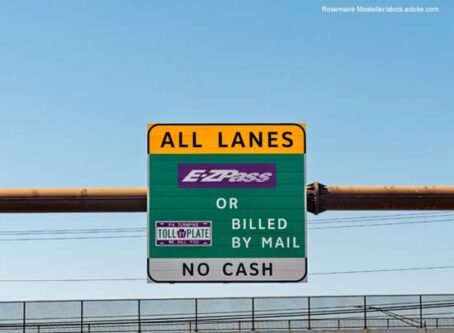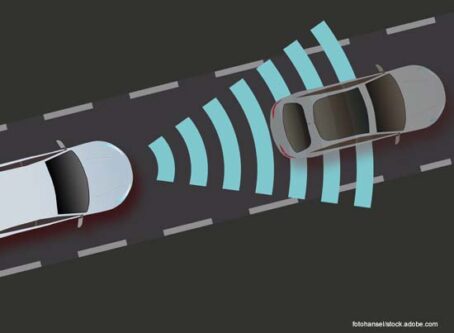New York City announces proposed congestion pricing rates
More details about New York City congestion pricing have been announced, including suggested charges for drivers.
On Thursday, Nov. 30, New York City’s Traffic Mobility Review Board released its report on congestion pricing recommendations for the city’s central business district. The central business district is the area in Manhattan south of 60th Street.
According to the report, the recommended congestion pricing for large trucks entering the central business district is $36. The suggested charge for smaller box trucks is $24.
Buses would be charged similarly. Intercity and charter buses would pay $24 under the proposal, while tour buses would pay $36.
Congestion pricing recommendations for remaining vehicles include:
- $15 for passenger vehicles
- $7.50 for motorcycles
- $1.25 per ride for taxis
- $2.50 per ride for app-based for-hire vehicles (e.g., Uber, Lyft)
For passenger vehicles, drivers would be capped at only one central business district toll per day. Truck drivers, on the other hand, would be charged each time they entered the district.
The above congestion pricing structure would apply to the peak hours between 5 a.m. and 9 p.m. Fees would be reduced by 75% during off-peak hours.
A congestion pricing discount would apply to drivers who had already paid a tunnel toll. Drivers entering the central business district via the Lincoln and Holland tunnels from New Jersey and via the Queens-Midtown and Hugh L. Carey tunnels from Queens and Brooklyn would pay a smaller congestion pricing fee. The “crossing credit” would be $20 for large trucks and tour buses, $12 for small trucks and intercity/charter buses and $5 for passenger vehicles.
The crossing credit would apply only for trips taken during the day. No crossing credit is recommended for nighttime trips, since toll rates would be reduced by 75%.
Congestion pricing recommendations in the report will be considered by the Board of the Triborough Bridge and Tunnel Authority on Wednesday, Dec. 6. Public hearings on the board’s decisions will be held in February. After public hearings, the Metropolitan Transportation Authority will hold a vote on whether to authorize the Triborough Bridge and Tunnel Authority to adopt a congestion pricing rate schedule that would allow the city to begin collecting the tolls. When toll collection would begin would be announced at a later date.
Lawsuit challenging NYC’s congestion pricing
Not everyone is happy about New York City’s congestion pricing, with a neighboring state taking its opposition to the courtroom.
In July, New Jersey Gov. Phil Murphy announced that the state has filed a lawsuit against the U.S. Department of Transportation and the Federal Highway Administration in an attempt to block New York City’s congestion pricing.
The lawsuit argues that the U.S. DOT and FHWA violated the National Environmental Protection Act, which requires a full environmental impact review for projects of this projected impact and scope, as well as the Clean Air Act.
In a news release, Gov. Murphy called the congestion pricing “unfair taxation and discriminatory treatment” of New Jersey residents.
“After refusing to conduct a full environmental review of the MTA’s poorly designed tolling program, the FHWA has unlawfully fast-tracked the agency’s attempt to line its own coffers at the expense of New Jersey families,” Gov. Murphy said in a statement. “The costs of standing idly by while the MTA uses New Jersey residents to help balance its budget sheets are more than economic. At the MTA’s own admission, its tolling program would divert traffic and shift pollution to many vulnerable New Jersey communities, impacting air quality while offering nothing to mitigate such considerable harm. Today we stand as a unified front against this reckless scheme and reaffirm our commitment to combat the unjust taxation of our hardworking residents by other states.”
The day before the Traffic Mobility Review Board’s congestion pricing report was officially released, Gov. Murphy doubled-down on his opposition.
“Tonight’s leaked report demonstrates the rushed and opaque process that the MTA and the Traffic Mobility Review Board have pursued to impose an unfair and ill-conceived congestion pricing tolling scheme on New Jersey commuters,” he said in a statement. “Despite our interconnected and interdependent regional economy and transportation system, New York officials did not meaningfully consult with us from the outset and instead treated New Jerseyans as a convenient way to fill an MTA budget hole.”
For years, the Owner-Operator Independent Drivers Association has held that congestion pricing is unfair for truckers.
In September 2019, OOIDA Director of Government Affairs Collin Long told Land Line Now that unlike many motorists, truckers do not have flexibility when it comes to when and where they drive.
“Truckers lack the flexibility in their schedule or the control over their schedule to make certain that they are not arriving in a lot of these urban or suburban areas that are considering congestion pricing at a time when roads are at their highest congestion,” Long said. LL









